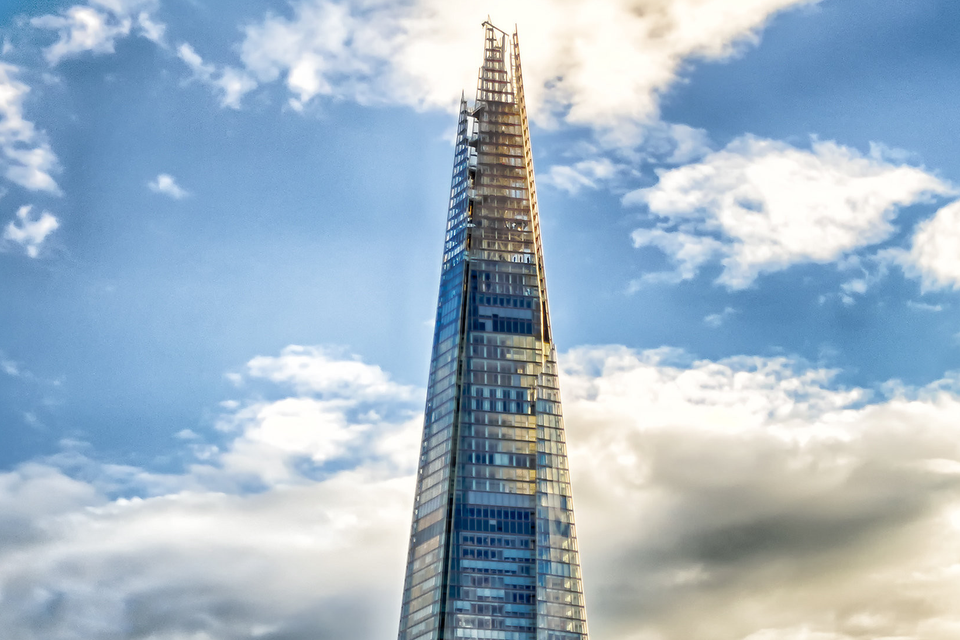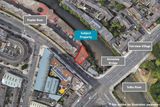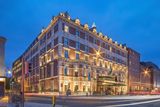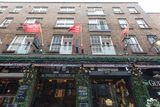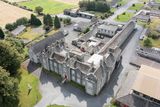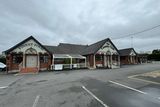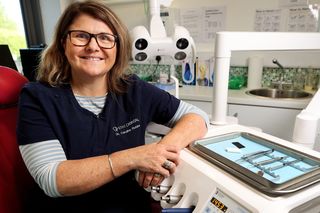Irish construction boss reached for the heights with London landmark
Flan McNamara tells John Reynolds about a career that has taken him all over the world - and how he directed the construction of The Shard in London
London’s tallest building, The Shard
From his 18th-floor office window near London's Oxford Circus, Flan McNamara can see the distinct 1,016ft glass-and-metal skyscraper whose construction he oversaw, The Shard.
He's telling the story of his work on the £435m, 95-storey flagship building, where the weather was the key variable that threatened to hold up progress on its upper reaches. "At times, the cranes were idle for 60pc of the working week, so there were significant delays. We didn't have comparable weather records, other than for Canary Wharf, for the height we were working at.
Flan McNamara
"But we built it on time and on budget. It was a flagship project at a time when the workload in London had been seriously impacted by the 2008 economic crash. But that also gave us an advantage, because the best people were available - whereas today, for instance, if you tried to do it, many of them wouldn't be.
"I'm incredibly proud of the building. It redefined London."
McNamara, who was born in Kilrush, Co Clare, emphasises how much of a team effort completing The Shard, in November 2012, was. "We had the world-leading architect, Renzo Piano. He would come to the site very regularly and engage with those of us working on it. He was very approachable; someone you could really communicate with.
"The building's developer, the late Irvine Sellar, controlled it day-to-day, and ran a very tight ship. He was very careful with the budget, in the knowledge that the funder was Qatar's Sheikh Abdullah al-Thani, who also visited every three months. (He stepped in with funding after problems that resulted from the economic crash).
"They were an amazing duo to work for. Irvine was very driven. They shared a passion for the project. They got on together like they were brothers," said McNamara. "The main contractor, Mace, definitely made an impact too. We had great subcontractors as well. From an Irish perspective, the Byrne group provided the concrete, and their top men shared our commitment as well.
"We all realised this was something special - a landmark that would change the South Bank and the face of the city forever. In many ways, it was technically ahead of its time," McNamara says.
It was not the only huge London landmark that he helped get across the line. Prior to it he finished a pre-construction report and planning submission for a hospital in Peterborough, and was brought in to review the progress of the Westfield shopping centre in west London. He then stayed on as construction director.
"I had to tear down some fiefdoms and associated entrenched positions there. One of my first major decisions was to take a fresh approach and speed up work on an underground rail siding that was behind schedule and delaying the start of a big section of the shopping centre.
"I brought two previously separate teams together, and beefed up the rail workers. It was essentially a refocus restructure that provided greater flexibility in decision-making, and again, allowed us to deliver the project on time and on budget at the end of October 2008. It got it back on track, and without it, there wouldn't have been a shopping centre."
Management is about teamwork
For McNamara, managing people is one of the parts of the business he enjoys the most.
"It's hugely important to get to know each individual in the team, not only from a skills viewpoint, but also their personal circumstances and ability to be team players. Egos are a pet hate of mine, and I've often had to rein in big egos.
"I like my teams to have a wide variety of experience and skills. Some people are great at the start; others in the later stages, but I prefer people who will last the course. You need stamina and resilience, and they're not traits you can always discern from just reading a CV.
"Football teams are made up of superstars and the players who are not so much the stars. But the key to their success is when they all work together under a manager who uses their different skillsets to the best ends. The best managers are the ones who can control the stars' egos, but still get the best out of them. I'd love to have learned from such legends as Brian Clough or Alex Ferguson, who both got it right.
"You need close-knit experienced teams who are straight-talking, where the lines of communication are open; and you're open about both praise and criticism in a constructive way, and at the appropriate time. That creates the right culture. I guess, being Irish, we might be used to speaking our minds," he says.
Hard graft and 'the lump'
McNamara got an early taste of hard graft in Kilrush, where his parents and uncle had a couple of shops, including a fish-and-chip shop, where he could be found peeling potatoes and cutting them into chips as a boy.
"Everyone had to muck in. My parents were up early each morning in preparation for long days, and there was that real sense of the hard work involved in running a small business," he says.
After his father and uncle passed away when he - an only child - was still very young, his mother made the decision to emigrate to London in the late 1960s, so that she could find work for herself and get McNamara a start with another uncle, Dessie, who was a construction foreman.
"It was that familiar history we all know. He used to pick up Irish labourers each morning in Camden Town. He paid them in cash - 'the lump' - at the end of each day.
"I trained as a mechanical and electrical engineer, and I was fortunate that a chief engineer by the name of Frank Tipples, whose wife was Irish, took me under his wing. I then was able to do a four-year full indentured apprenticeship."
Oman, Abu Dhabi, Saudi Arabia, Yemen,
That start later took McNamara working all over the world, initially to Oman, Abu Dhabi, Saudi Arabia and Yemen in the 1980s. "It was probably one of the most formative experiences of my life. It toughened me up, being away from home, and made me very adaptable and resilient," he says. "I particularly loved Yemen. I was in Aden, which was so undeveloped at the time, in contrast to the tragic land of war and famine today - and very much enjoyed getting to know people from all these cultures."
He then worked on Heathrow's Terminal Three in 1986, followed by other major projects in London: Broadgate, Canary Wharf, Olympia, and then the refurbishment of the Natwest Tower after its bomb damage, plus a stint in Barcelona, working on its Olympic stadium, along with fellow Irishmen Ray and Des O'Rourke.
Working for Dundalk developer
Today, McNamara is the design and construction director of Osborne and Co, a firm founded by father and son Jim and Conor Osborne, whose roots are in Dundalk, Co Louth.
Osborne and Co, formed from the Osborne's previous businesses GRDI - which operated in Asia, India and the Middle East, and Vanguard Real Estate's UK business, has over £1bn of development under way, including £550m worth alone in Glasgow and Belfast, with others in Bootle and Milton Keynes, and an eye out for a future project in London.
What's more, the firm - which specialises in building to suit occupiers who are mainly blue-chip corporates such as banks - aims to grow its development pipeline to £5bn by 2022.
Other developments are in Dubai, the Philippines and Ghana, for clients such as HSBC, Santander and Standard Chartered. The firm will also be working for Indian partners, Embassy Group and Shapoorji Pallonji's group in Europe.
Belfast in particular - where it's building 750 homes, a hotel, offices, retail and creative space in the Waterside development - is likely to see further investment. The firm has looked at Dublin too, but not entered the market there yet.
"We've got former heads of property at the BBC and Citibank working for us. Look at what Bloomberg achieved here in London at their new HQ. You had a client and an architect who had a shared vision and they both knew exactly what they wanted to create there. Look at how that was achieved with The Shard as well.
"In the same way, we're always looking at how we can raise our game to deliver outstanding building designs for our clients and developments that stand the test of time," he says.
Join the Irish Independent WhatsApp channel
Stay up to date with all the latest news
